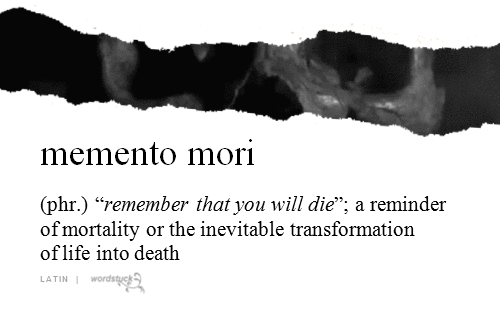#latin quote
Text

80 notes
·
View notes
Text
"Omnes sumus peccatores"
–We are all sinners
#latinquotes#latin quote#quotes#dark academia#literature#poem#poetry#dark acadamia aesthetic#romantic academia#bookish#beautiful words#spilled poetry
27 notes
·
View notes
Text

#dark academia aesthetics#wordsnquotes#quotes#books#classical academia#light academia#book aesthetic#booksbooksbooks#brown#brown aesthetic#dark academia#cottagecore#dark academia lifestyle#bookblr#literature#dark acadamia aesthetic#literature quotes#dark acadamia quotes#quoteoftheday#book quote#classy#books and libraries#dark romanticism#knowledge#dark academia quotes#latin#latin quote#artblr
21 notes
·
View notes
Text
per aspera ad astra
#academia aesthetic#dark academia#dark academia quotes#if we were villains#books & libraries#classic books#vintage#booklr#museums#light academia#chaotic academia#book quotes#latin quote
15 notes
·
View notes
Text
Si Vis Pacem, Para Bellum: Unveiling the Wisdom of 'If You Want Peace, Prepare for War 🕊️⚔️
The Essence of Strategic Readiness
Translated as "If you want peace, prepare for war," this quote encapsulates the strategic notion that being well-prepared and strong serves as a deterrent, reducing the likelihood of conflict.
Historical Context
Originating from Roman military philosophy, this maxim reflects the understanding that a nation's strength and readiness act as a safeguard, discouraging potential adversaries from instigating hostilities.
Diplomacy and Deterrence
The quote emphasizes the importance of diplomacy and preparedness as complementary elements in the pursuit of peace. A nation that is perceived as strong is often in a better position to negotiate and maintain stability.
A Modern Interpretation
In contemporary contexts, the maxim is invoked to highlight the importance of maintaining a robust defense and strategic capabilities to ensure national security, contributing to global peace through strength.
Striking a Balance
While the phrase underscores the necessity of military preparedness, it also urges a delicate balance between strength and diplomacy. A nation's goal should be peace, with war considered only as a last resort.
Preventing Aggression
The essence of the quote lies in deterring aggression rather than actively seeking conflict. By demonstrating preparedness, a nation can discourage potential adversaries from choosing the path of war.
Applicability Beyond Warfare
The wisdom in "Si Vis Pacem, Para Bellum" extends to various aspects of life, emphasizing the value of preparation and resilience in facing challenges, not just in the realm of conflict.
3 notes
·
View notes
Text
aut viam inveniam aut faciam
I shall either find a way or make one
Note: The phrase has been attributed to Hannibal in one of Seneca's Hercules Furens (Act II, Scene 1, line 276) but there it was written in the third person "inveniam viam, aut faciam" meaning he will find a way or make one. The usage of “will” or “shall” in the English translation is dependent on one's own interpretation of the Latin original as Latin itself doesn’t distinguish between them.
2 notes
·
View notes
Text
Fronti nulla fides.
No trust in appearances.
#quotes#latin quote#Latin Proverb#inspiring quotes#life quotes#inspiring words#creative writing#writers#literature#books#poem#poetry#writerscommunity#writers and readers#writers on tumblr#writers and poets#Writing#writing community
2 notes
·
View notes
Text
“quod sis, esse velis nihilque malis”*
—Martial, circa 100
*“That which you are, may you wish to be and may you prefer nothing else”
2 notes
·
View notes
Text

Background pic: by Henry Be on Unsplash.
[Image description: Shelves filled to the brim of antique books in the background, next to them a ladder. Over it the following quote from Erasmus' Ars Notoria: Ego aliam artem notoriam non novi, quam curam, amorem, assiduitatem. /end]
Today, for one reason or the other, I was reading this dialogue between Erasmus of Rotterdam and his son. The son wanted to learn a shortcut to memorize things quicker, but the conversation ends with this sentence from his father: "I do not know any other technique for committing things to memory than effort, than passion, than constant application."
Today was also the day I reached a milestone in my academic career, and it was reached cura, amore, assiduitate, so there's that.
2 notes
·
View notes
Photo




(via Nunc est bibendum: now is the time to drink Clock by BrixtonWords)
#findyourthing#redbubble#nunc est bibendum#time to drink#free time#happiness#latin#latin quote#sophisticated#latinist#classicist#blacklinesw9
8 notes
·
View notes
Text
Bonus est videre et videri, audere et auderi, amare et amari.
"It is good to see and to be seen, to hear and to be heard, to love and to be loved."
4 notes
·
View notes
Text
"Ubi tu Gaius, ego Gaia."
Wherever you'll be, I'll be with you.
(Litterally: Where you'll be Gaius, I'll be Gaia)
This quote was pronunced by the bride in ancient roman weddings to indicate the total submission to her groom. Today it still can be pronunced by both the newlyweds and it has a simbolic value indicating a solemn mutual commitment of love and loyalty.
0 notes
Text

#dark academia aesthetics#wordsnquotes#quotes#books#classical academia#light academia#book aesthetic#booksbooksbooks#brown#brown aesthetic#dark academia#cottagecore#dark academia lifestyle#bookblr#literature#classic literature#dark acadamia aesthetic#literature quotes#dark acadamia quotes#quoteoftheday#book quote#beautiful quote#classy#books and libraries#dark romanticism#knowledge#dark academia quotes#latin#latin quote#artblr
21 notes
·
View notes
Text
« Nos ipsi in hoc mundo caro sumus.
Nos ipsi ex hoc mundo caro sumus ».
B.A.A.L.
0 notes
Text
annabeth, screaming at percy mid battle: haec est culpa tua!
percy, sighing: yeah i know
grover: when did you learn latin?
percy: i didn't. i just know the phrase "this is all your fault" in every language annabeth speaks
#guys the latin is google translate im sorry!!!!!#this post is actually my favorite because i’m learning so much about latin#annabeth chase#incorrect quotes#jason grace#leo valdez#percy jackon and the olympians#percy jackson#piper mclean#pjo incorrect quotes#pjo tv show#walker scobell#incorrect pjo quotes#pjo spoilers#pjo fandom#pjo series#percabeth#hazel levesque#leah sava jeffries#luke castellan#greek mythology#grover underwood#thalia grace#frank zhang#sally jackson#nico di angelo#riordanverse#incorrect riordanverse#rick riordan
7K notes
·
View notes
